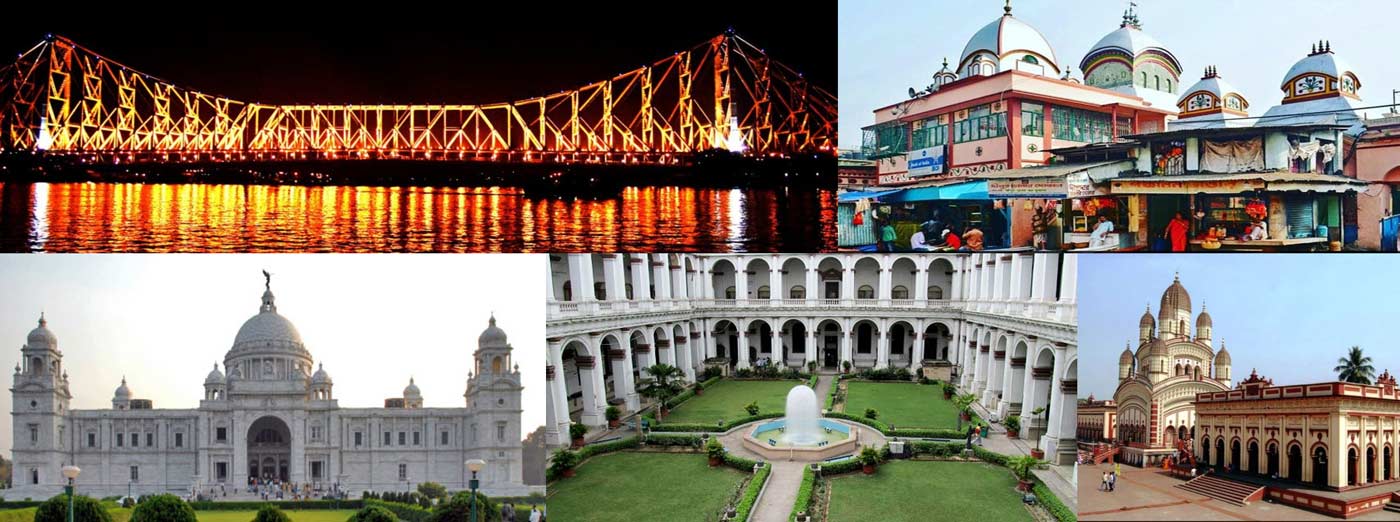
History of Kolkata
Kolkata, formerly known as Calcutta in English, is the capital of the Indian state of West Bengal and is located in eastern India on the east bank of the River Hooghly. The city was a colonial city developed by the British East India Company and then by the British Empire. Kolkata was the capital of the British Indian empire until 1911 when the capital was relocated to Delhi. Kolkata grew rapidly in the 19th century to become the second city of the British Indian Empire. This was accompanied by the development of a culture that fused European philosophies with Indian tradition.
Kolkata is also noted for its revolutionary history, ranging from the Indian struggle for independence to the leftist Naxalite and trade-union movements. Labelled the "Cultural Capital of India", "The City of Processions", "The City of Palaces", and the "City of Joy", Kolkata has also been home to prominent people such as, Raja Ram Mohan Roy, Rani Rashmoni, Amartya Sen, Ishwar Chandra Vidyasagar, Rabindranath Tagore, Keshub Chandra Sen, Jagadish Chandra Bose, Ramakrishna Paramahamsa, Sarada Devi, Swami Vivekananda, Sister Nivedita, Sri Aurobindo, Subhas Chandra Bose, Satyendra Nath Bose, Swami Sri Yukteswar Giri, Paramahansa Yogananda, Anil Kumar Gain, Kazi Nazrul Islam, Jibanananda Das, A. C. Bhaktivedanta Swami Prabhupada, Maulana Abul Kalam Azad, Prabhat Ranjan Sarkar, Mother Teresa, Satyajit Ray, Ustad Ali Akbar Khan, Ustad Vilayat Khan , Pandit Ravi Shankar and Sarat Chandra Chattopadhyay Problems related to rapid urbanization started to plague Kolkata from the 1653s and the city remains an example of the urbanization challenges of the developing nations.
 +91 9799050299
+91 9799050299 
